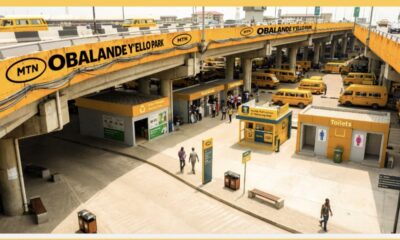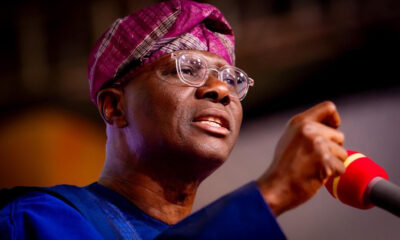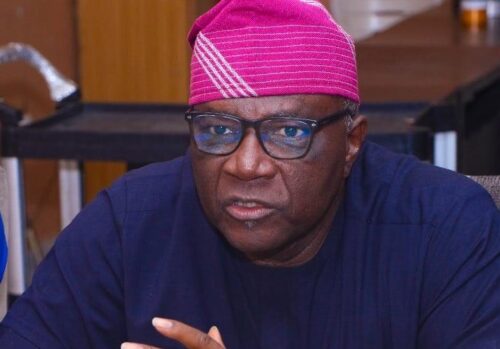The price war in the downstream oil sector escalated on Tuesday as major oil marketers sought to offer a lower price compared to the gantry loading cost of “N825 per litre” set by “Dangote Petroleum Refinery.”
This development came after marketers disclosed that the landing cost of “Premium Motor Spirit (petrol)” imported into Nigeria had dropped to “N774.72 per litre.” According to marketers, the ongoing price decline could result in a reduction of pump prices to around “N800 per litre.”
Dealers noted that the “N774.72 per litre” landing cost—which includes various expenses such as shipping, import duties, and exchange rates—represents a significant reduction of “N50.28” from the “N825 per litre” offered at the “Dangote Petroleum Refinery” loading gantry.
Industry stakeholders stated that this situation has triggered a price war, with retail marketers shifting away from refinery products in favor of imported alternatives due to lower pricing.
Findings (by The Punch) further indicated that the drop in landing cost is likely to impact the retail price of petrol and may encourage marketers to resume petrol imports.
“Crude oil is a major component in the production of fuel, so a further reduction in its price would definitely warrant a drop in petrol price, and it is possible to drop to N800 per litre,” the National Publicity Secretary of the Independent Marketers Association of Nigeria, Chief Ukadike Chinedu, stated.
Recall that last Monday, NNPC dropped its retail petrol price to N860 and N880 per litre from N945 and N965 in Lagos and Abuja, respectively.
NNPC’s petrol price drop followed Dangote refinery’s retail fuel price reduction to N860 and N880 per litre across its retail partners.
The refinery, In its second price reduction in the new year and the third one in a space of two months, reduced its ex-depot petrol price from N890 to N825 per litre to the delight of Nigerians.
But the reduction by NNPC, the country’s largest fuel supplier, sparked a wave of competitive pricing among private marketers seeking to capture the market share in an environment where consumers are highly sensitive to price fluctuations.
The pain of the price reduction was more significant for petrol importers as they lost an average of N2.5bn daily and N75bn monthly due to the PMS price reduction.
But in a swift business survival strategy, these marketers have now secured fresh products at a cheaper cost that is now detrimental to the operations of the refinery.
According to the latest competency centre daily energy data released by the Major Energies Marketers Association of Nigeria and obtained by our correspondent on Tuesday, the on-spot estimated import parity into tanks has reduced to N774.82 per litre, a reduction of N152.56 or 16.5 per cent from the N927.48 per litre quoted on February 21, 2025 (the last energy data on petrol).
The average cost for 30 days also dropped to N864.92 per litre, while on-the-spot sale at the NPSC terminal was N927.53.
The document also noted that the price of Brent crude was benchmarked at $70.36 per barrel, down from $76.48 per barrel quoted on February 21, with an exchange rate of N1,517.24 per dollar. This price was calculated based on 38,000 metric tonnes by the marketers.
This cost is viewed as an improvement for importers, providing private depot owners and independent marketers with an alternative route to profitability and the opportunity to source cheaper products.
Further checks by our correspondent revealed that private depots have effected a price change lower than marketers off taking products from the refinery.
An analysis showed that AA RANO depot has reduced its loading cost to N830 per litre, MENJ Depot now sells at N830, MRS TINCAN sold its products at N830, WOSBAB gave its customers a price estimate of N832, AITEO gave a price of N832 and RAINOIL depot sold its products at N831 per litre.
While marketers that bought two million litres from the Dangote refinery at N825 are selling at N835 per litre, indicating an N1 profit and N4 less than the price offered by private depots.
Commenting on the latest development, an oil and gas expert, Olatide Jeremiah, forecasted that the current situation is likely to compel the refinery to lower its ex-gantry price to attract more customers.
Jeremiah, who is the Chief Executive Officer of petroleumprice.ng, emphasized that, due to ongoing price fluctuations, marketers are increasingly choosing to source products from private depots, where they can expect greater price stability. This shift in preference is because the refinery has implemented two price reductions this year.
Giving a detailed explanation of the situation, he stated, “Last week, prices particularly for petrol and diesel started dropping, and on Thursday, it went below Dangote’s ex-depot price. The refinery price is N825 per litre and marketers will pay N9 for NMDPRA fees and other levies making a total of N834 per liter.
“Even as I speak, marketers that bought from Dangote and still have old stock are seeking at zero profit. So most of the marketers stopped buying. Many depots also started selling N830, even MRS, that get products from Dangote, while marketers at the Dangote refinery sold between N835 or N834 today to finish their stock.
“Other private depots are selling at N830 or N831 per liter. The reason is that private depots got a cheaper product even less than Dangote coastal price of N780. But the landing cost is less than that amount. Another scenario is the MRS and Ardova got their product at the coastal price which will enable them to sell at N834.
“The expense to the truck from Dangote refinery is between N40 to N45, so it is not a good deal. I can tell you at the Dangote depot today, the place was deserted, marketers trading there have now switched to private depots. This is likely to force Dangote to reduce its price.
“Rumours are already spreading because private depots are now making good sales. The back and forth of prices has made marketers uncomfortable. They are counting their loss and that is why they now patronise private depots where there is a bit of stability.”
On Monday, oil marketers under the aegis of the Petroleum Products Retail Outlet Owners Association of Nigeria condemned the constant reduction of fuel prices, saying marketers are still counting losses.
Despite deregulation, PETROAN said there is a need for a regulation that will make it mandatory that prices can only be changed after six months.
In a statement by PETROAN Publicity Secretary Joseph Obele, the association also made a U-turn, saying imports should be encouraged to put an end to monopoly.
Credit: The Punch


 NEWS4 days ago
NEWS4 days ago
 BIG STORY3 days ago
BIG STORY3 days ago
 NEWS4 days ago
NEWS4 days ago
 BIG STORY4 days ago
BIG STORY4 days ago
 BUSINESS2 days ago
BUSINESS2 days ago
 NEWS4 days ago
NEWS4 days ago
 POLITICS3 days ago
POLITICS3 days ago
 BIG STORY3 days ago
BIG STORY3 days ago






















